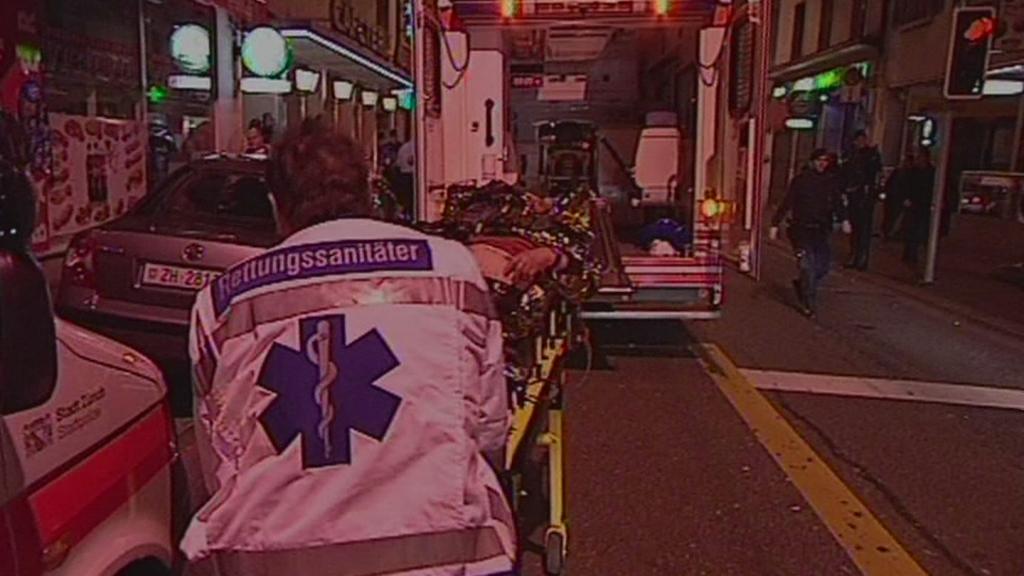Youth violence becomes a table topic in Zurich

House calls are the latest ammunition in the fight against youth violence in the city of Zurich.
As part of a two-year pilot project, youth advocacy workers and police have been visiting juvenile offenders at home to make their families aware of the severity of the problem.
Often, parents fail to realise that what their child described as a harmless scuffle may have resulted in a trip to hospital for the victim.
Lack of information means the families sometimes play down the crimes, cover them up or simply tolerate them. This is what the home visits aim to tackle, thereby nipping potential criminal careers in the bud.
“The home visit is about sending a signal and being sure that the parents are aware of the incident,” said Hansueli Gürber, senior youth advocate of the city of Zurich. It seems to be working.
Gürber told swissinfo.ch most of the juvenile offenders have maintained clean records since the house call.
Since the start of 2010, teams have visited 20-25 homes. This is fewer than expected – thanks to what Gürber calls a “pleasing decline” in cases of youth violence.
Full disclosure
Such house calls are already common in the Netherlands. Gürber says there are three key aspects to this approach: the direct involvement of families in solving problems; preventing improperly informed parents from shielding their children from the authorities; and closer cooperation between the police and youth advocacy workers.
Information and education about the scope of a criminal offense and its consequences is a “constructive contribution” for the prevention of youth violence, says Gürber. He stresses that most parents appreciate the service, even after initial scepticism. So far only one family has rejected the request for a home visit, he says.
Such a visit is intended as a one-off measure. Gürber says that the conversation at the family table or sofa usually has the desired preventive effect because it is just one aspect of the overall handling of a case history.
Depending on the case, social workers have already contacted the parents, or it may be that the young person has already served a sentence.
Balancing act
According to Cornelia Bessler, head of youth forensics at Zurich University’s centre for child and youth psychiatry and psychotherapy, home visits are a very delicate exercise calling for a high level of people skills.
“It’s a balancing act between a confrontation and an offer of help. On the one hand, the authorities are informing the family that one of its members has committed a crime,” Bessler said.
“At the same time, the family has to be won over in the interest of constructive cooperation.”
The pressure on the young offenders in this situation is especially high, says Bessler. Without sensitivity on the part of the official visitors, feelings of guilt, shame and remorse could provoke the young offenders to react defensively – thus increasing the risk of knee-jerk reactions.
Cost pressure
Originally, the idea was to have the firm presence of a city police officer working in youth advocacy until 2012 – not just on home visits or formal meetings. Gürber regrets that a lack of resources has resulted in staffing cutbacks.
Nevertheless, he hopes that the city government will institutionalise the integration of a policeman in youth advocacy after the two-year experiment.
As is the case at the public prosecutor’s office, he finds there should be a police officer serving at each of the five municipal youth advocate offices.
Other Swiss cities appear to be waiting for the results of Zurich’s two-year pilot phase. Thus far, Gürber says he has had no enquiries from other authorities.
In early April, the federal government, cantons, cities and towns launched a common prevention programme – “Youth and Violence” – which runs until 2015.
The federal government is providing nearly SFr6 million ($7 million). The programme is coordinated by the Federal Social Insurance Office.
The programme aims to build a network, at the centre of which there will be cantonal and municipal centres for violence prevention.
Participants include the conference of cantonal governments as well as the Swiss associations of cities and municipalities.
(Adapted from German by Susan Vogel-Misicka)

In compliance with the JTI standards
More: SWI swissinfo.ch certified by the Journalism Trust Initiative






You can find an overview of ongoing debates with our journalists here. Please join us!
If you want to start a conversation about a topic raised in this article or want to report factual errors, email us at english@swissinfo.ch.